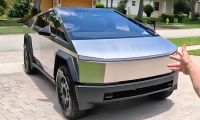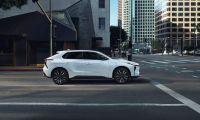We wrote an article last January warning Honda owners not to burn E15 fuels in any Honda model. Civic is not immune to the possible exhaust system, fuel lines, pump and piston ring damage caused by the corrosive properties of ethanol. What we now know is that some E15 fuel compounds(15% corn alcohol and 85% gasoline blends) can separate in the tank, leaving 100% ethanol in the fuel pump pickup tube.
Depending on the timeline, position of your fuel pump, external air temperature, etc, this separation can lead to damage not covered by your manufacturer’s warranty. In-fact, if we take a minute to check out Honda’s owner’s question and help webpage, we read that Honda won't cover fuel system, engine or exhaust damage attributed to the use of E15 or E20 fuels.
What Honda Civic model can run on E15 fuel? According to Honda, only 2014 models or newer are manufactured to run on E15 fuels.
Can my Honda Civic run on E20 fuel? No, as of this writing no Honda manufactured engine or support systems is E20 fuel compatible. While Chevrolet and Ford may post a Flex Fuel logo on the rear deck of a few select cornbelt favorites, Honda and most automotive manufacturers don’t. They'll void your factory warranty for using E15,E20 and E85 fuel blends.
Fair warning: Don’t try it. You can read about the disastrous results of experimenting with high ethanol blends here. This writer pulled into an alternative-fuels station in Eugene,Or.. We unwittingly requested that the attendant pump 6 gallons of E85 into the fuel tank before catching the error.
The added power produced by the high-heat, clean burn of the ethanol/gasoline blend was fun for a few miles. We were happy, the car was not. Not knowing of the propensity of ethanol to separate from gasoline, we attempted to “blend out” the high test E80 to no avail.
The damage was done… In this case the very expensive Bosch fuel sensors(2 upstream and 2 down) were fried. And, the 4 catalytic Volvo 80 S Turbo that we were driving at the time, was never the same. Repairs in this case ran $2,000. The same will apply to your 1.7 or 2.4L i VTEC 4 cylinder Honda Civic; unless its a 2014 Civic or newer. And as far as we know, that’s as new as a Civic gets.
The reason for this is simple. Unless your Civic has been modified to burn high percentage ethanol /gasoline blends; stainless steel fuel tank, fuel lines, fuel strainer, fuel pump housing. Hardened intake and exhaust head valves and hardened piston rings and pistons, your car will break.












Comments
E15 was never about properly
Permalink
E15 was never about properly testing its effects on an engine and fuel system durability. It was all about emissions for the EPA who took flawed minimal time frame studies and made them proof E15 was safe. They twisted the arms of manufactures to embrace E15 all the while they were rejected warranty claims if E15 was used. Seems like the only safe vehicle to put E15 or E85 in is a flex fuel certified vehicle. Otherwise, I think stick with E10 or pure gas if you can find it.